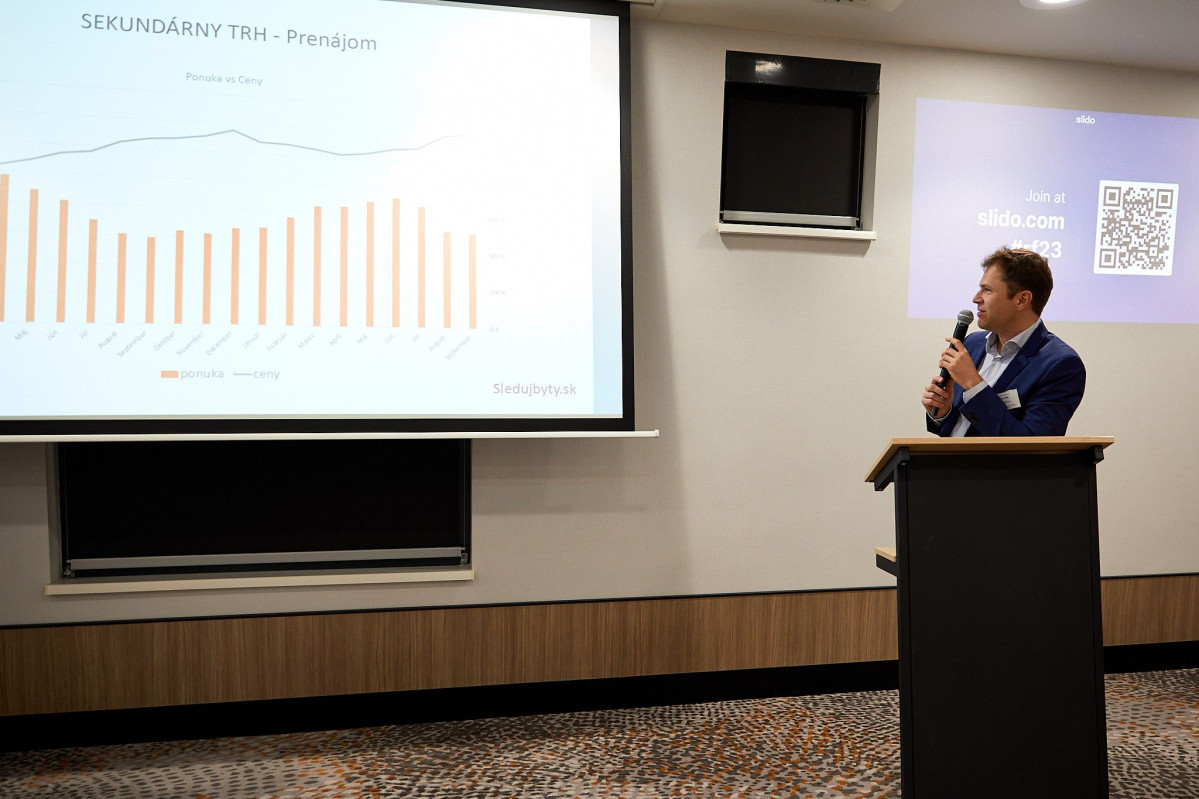The autumn real estate Forum looked at how anti-inflationary measures, a pending amendment to the Building Act, and ESG (environmental, social, and governance) priorities will affect construction speed and quality, as well as real estate pricing. Mastering ESG, especially environmental factors (E), offers a competitive advantage. Nevertheless, excelling in social factors (S) like resident comfort, and corporate culture (G) also matter. Although the office sector is furthest along in implementing ESG, users will have to learn how to operate in green office buildings.
What will development on the green wave be like?
“If you ignore sustainability in our sector, two unsustainable things will happen: rents will not stay at the given level, but will drop, and your operating costs will rise,” warned Adrian Bódis from CPI Property Group. The solution is to measure, together with tenants, what can be measured, share data, and invest in cost-saving measures. According to Rastislav Badalík, who is a member of the SKGBC Board of Directors, we already have more than 40% of certified office buildings in Slovakia. Business clients and ESG-driven multinational corporations are though now pushing offices to a new quality level. The projects are being handled by relatively new professions, such as an architectural psychologist or an arborists. ESG Compliance will therefore be a clear competitive advantage in property development, especially when confirmed by certification. Companies are becoming interested not only in certification as such, but also in what parameters the building excels in. As many discussion panellists observed, Slovakia still lacks updated legislative guidelines for green construction.

People must get used to a green building
Control of air-conditioning is often the cause of conflict between office workers, as one worker feels cold while another is sweating. Quality indoor climate control eliminates the need for constantly adjusting thermostats or opening windows. Green buildings differ from conventional ones. Occupants must understand this and adapt their behaviour to achieve up to 70% lower operating costs. Experts in the discussion agreed that most people should work in thermal comfort, fully focused without wasting time tweaking settings. Sophisticated systems require professional calibration, though fine tuning takes time, and this area should fall within the scope of duties of professionals. “Over the past decade, companies in the construction sector in Slovakia have begun to understand the role and expertise of a building physicist. Our role in project preparation is of a high added value directly translated into the quality of the working environment,” said Peter Bohuš, building physicist at IMMOCAP.
Since the pandemic there has been a shift in the workspace priorities among companies, explained work environment expert Eliška Kosová from Cushman & Wakefield. Today, firms are focusing on the intersection of three areas: culture, cost, and carbon footprint. The culture of the workspace has also been changing. Offices are most of all to be a space for socializing, collaboration, people should have access to tools and work on building their connection with the company and the brand. Finally, the area of meeting spaces has increased from 33% (2019) to 67% (2023). Companies strive to attract staff to return back to their offices with ergonomic workstations, free fruit, and vegetables, lots of indoor greenery, terraces, as well as assistance programmes and non-financial benefits.
Real estate business will be affected by legislation and decisions made by institutions
To make a developer feel uneasy, start talking about the amendment to the Building Act. Speakers during the Real Estate Forum stated that the ideal scenario is an amendment entering into effect on 1 January 2025. Conversely, the worst scenario is if the lawmaking and law adoption processes are halted. Either way, the amendment will hugely impact the entire construction sector. The industry is very anxiously awaiting the actions of the new leadership of the Ministry of the Environment of the Slovak Republic. Jakub Gossanyi from IMMOCAP said that developers are open to communication and trying to be as helpful as possible in the creation and implementation of the amendment. Unfortunately, for the time being they have to work in legislative uncertainty when preparing new projects.
The acronym “ESG” represents another legislative burden. Non-financial reporting will affect several areas, including project financing. Zuzana Kanalová from VÚB confirmed that more favourable conditions await those developers who build green and those promoting user welfare beyond that required by legislation. Dagmar Yoder from Deloitte Legal stressed that the biggest challenge for developers will be cooperation with their contractors, as the company is able to influence the environment only by 10%, and as much as 90% is attributable to its contractors. Martin Chlebec from Deloitte Tax added that there are no tax benefits being prepared for green construction.

While offices are on the cutting edge of green construction, residential projects have seen the biggest sustainability leap. This is despite the fact that the investor usually does not profit from lower operating costs as a residential project is sold to end users. Buyers are currently waiting to see what the new government will do and how financial institutions will react. There is no point in waiting too long; if the buyer wants to live in their own housing and has enough funding, they should go ahead and buy, as interest rates will not fall significantly, and the supply of apartments will continue shrinking. An alternative is state-assisted rental housing, but this market remains largely non-existent beyond a few isolated schemes.

